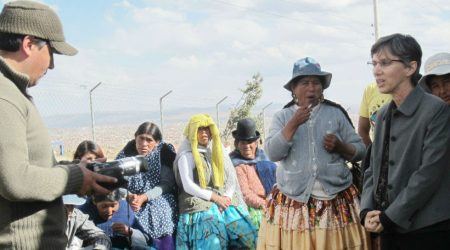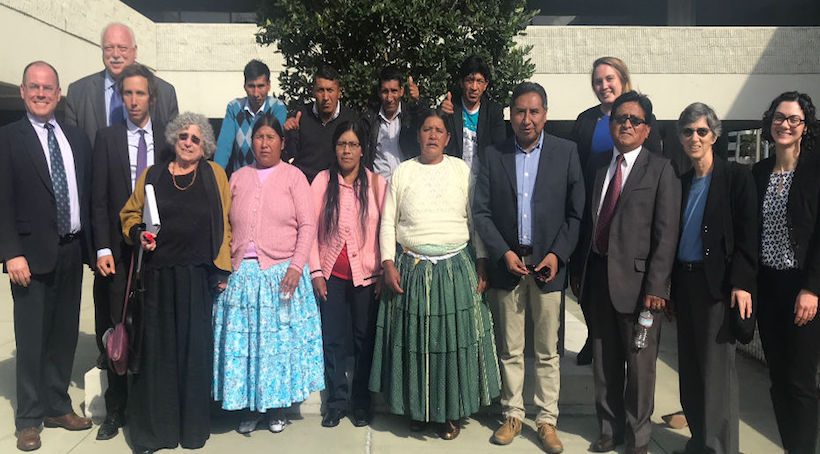Photos: Rutgers University-Camden
Rutgers University-Camden Law Professor Beth Stephens was recently part of a consortium of U.S. human rights lawyers who made history.
Stephens and the team of attorneys won a landmark case against Bolivia’s ex-president and former defense minister after a U.S. federal court jury found them legally responsible for planning and ordering the use of military force to suppress protests against government policies.
In a civil case tried under the U.S. Torture Victim Protection Act (TVPA) and Florida law, the court awarded $10 million to the victims’ families. The TVPA allows civil suits in the United States in cases of extrajudicial killings and torture carried out by foreign governments.

Beth Stephens (far right) speaks to family members who lost loved ones in the military crackdown on protestors
In 2003, at least 60 people were killed and more than 400 people were injured when soldiers opened fire during protests over a proposed natural gas pipeline in the city of El Alto, near La Paz.
Soon after the protests, Gonzalo Sánchez de Lozada, ex-president of Bolivia, and his former defense minister, José Carlos Sánchez Berzaín, fled their country for the United States, claiming political persecution.
“Coming here does not mean that you have escaped accountability for what you did at home,” says Stephens.
The team of attorneys began preparing for the case in 2008. Over the years, Stephens traveled to Bolivia seven times, meeting with men and women who lost family members during the military crackdown on the protests. She listened to their stories and gave status updates about court filings, delays and appeals over many years.
The lawyers in the case represented nine plaintiffs, including a couple whose eight-year-old daughter was killed when a bullet came through a window in the family’s home, a woman whose husband was shot and killed as he was closing a window in their home, and the husband of a pregnant woman who was killed when a bullet came through a wall. The couple’s unborn child also died.
To prepare for the case, Stephens received assistance from fellow Rutgers Law faculty and students. While teaching the mini clinic “Human Rights Advocacy and Litigation,” at the Camden campus, Stephens had the opportunity to work with her students to conduct research and write about human rights issues, and draft declarations.
Fellow Rutgers Law faculty also conducted a moot court in preparation for an appeal Stephens argued. “Some of them asked the obvious questions and some of them asked really difficult questions to prepare me for what I would likely expect from the appellate judges,” says Stephens. “It was extraordinarily helpful.”














